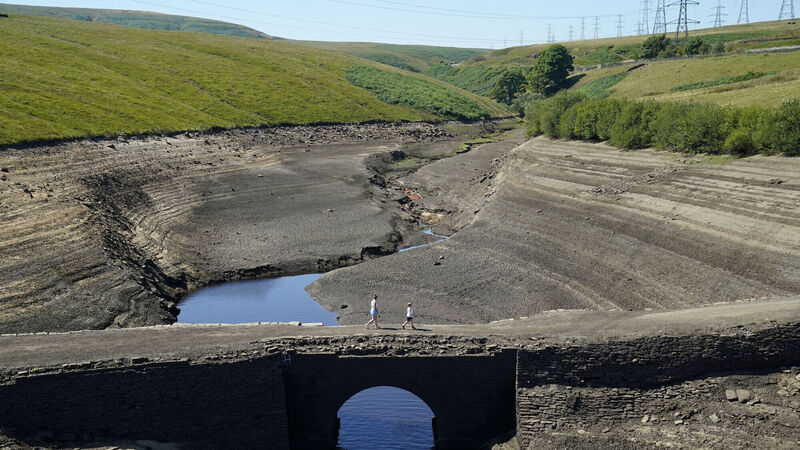Letters to the Editor: This month is likely to be the warmest September on record

The greatly depleted Baitings Reservoir in Ripponden, West Yorkshire, in August 2022 — drought conditions in England that Ireland could soon face too. Picture: Danny Lawson/PA
This past week, Ireland has experienced a rare September heatwave, the first of the 21st century. At the time of writing, all 25 weather stations monitored by Met Éireann are exceeding their Long Term Average temperatures by a minimum of three degrees and, in some cases, in excess of five.
Whilst there remains three weeks of September, it is likely to be our warmest September on record — for the time being.
CLIMATE & SUSTAINABILITY HUB











